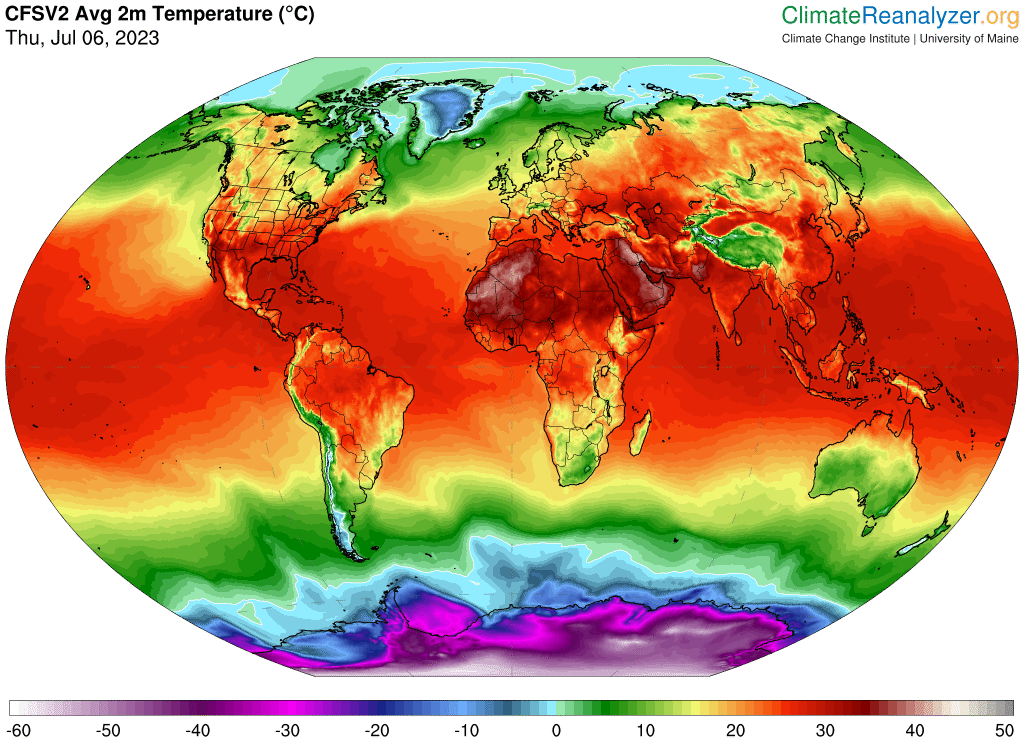July 7 () –
The global average temperature has reached a new all-time high for the third time this weekaccording to unofficial records.
The data analyzed by a group of American scientists show that the world average temperature this Thursday, July 6, was 17.23 °C, with a positive anomaly of 1.02 degrees above the average. It breaks the record of 17.01 degrees set on Monday, surpassed only a day later when the average temperature reached 17.18C.
Temperatures are being driven by climate change human-induced and natural weather pattern known as El Niñosay the scientists.
The El Niño Southern Oscillation, or ENSO, is the most powerful fluctuation in the weather system anywhere on Earth. It occurs every three to seven years, and in the warming phase, warmer waters come to the surface of the tropical Pacific, pushing heat up into the atmosphere.
“Climate scientists are not surprised that the world daily temperature record is being broken, but we are very concerned,” said Friederike Otto, senior lecturer in climate science at Imperial College London, quoted by the BBC.
“It should be a wake-up call for anyone who thinks the world needs more oil and gas,” he added.
The temperature readings come from a tool called Climate Reanalyzer. Scientists at the University of Maine use a combination of readings from surface observations, hot air balloons, and satellites, as well as computer models to assess average global temperatures.
The readings are not an official record, but are closely watched as an indicator of how temperatures fluctuate.
“El Niño has not yet peaked and summer is still in full swing in the northern hemisphere, so it would not be surprising if the daily temperature record is broken again and again in 2023“Dr Paulo Ceppi, a professor of climate science at Imperial College London, said.
Higher global temperatures are likely to make heatwaves even hotter and wildfires more severe, he added.



![[Img #74661]](https://thelatestnews.world/wp-content/uploads/2024/12/The-power-of-ultrasound-150x150.jpg)









![[Img #74661]](https://thelatestnews.world/wp-content/uploads/2024/12/The-power-of-ultrasound-300x200.jpg)

